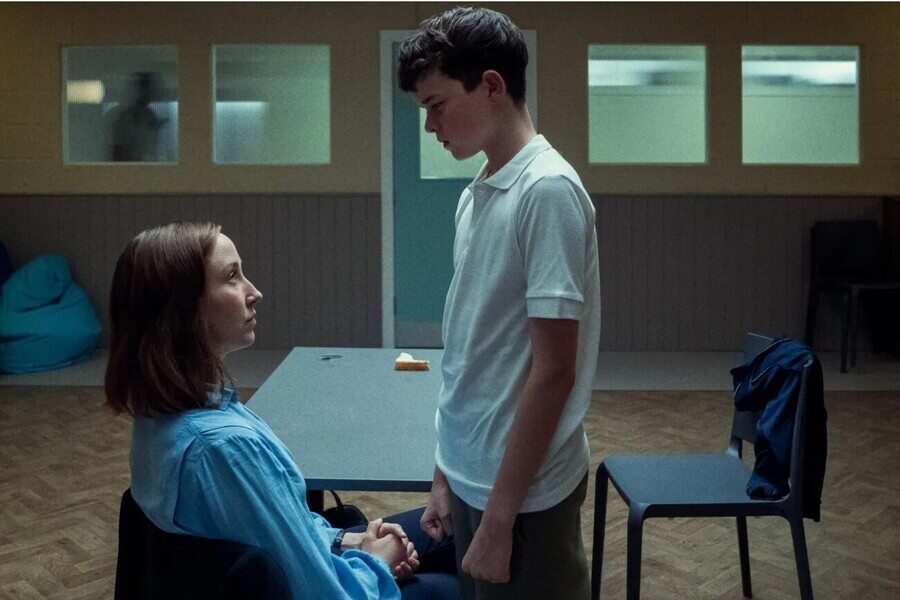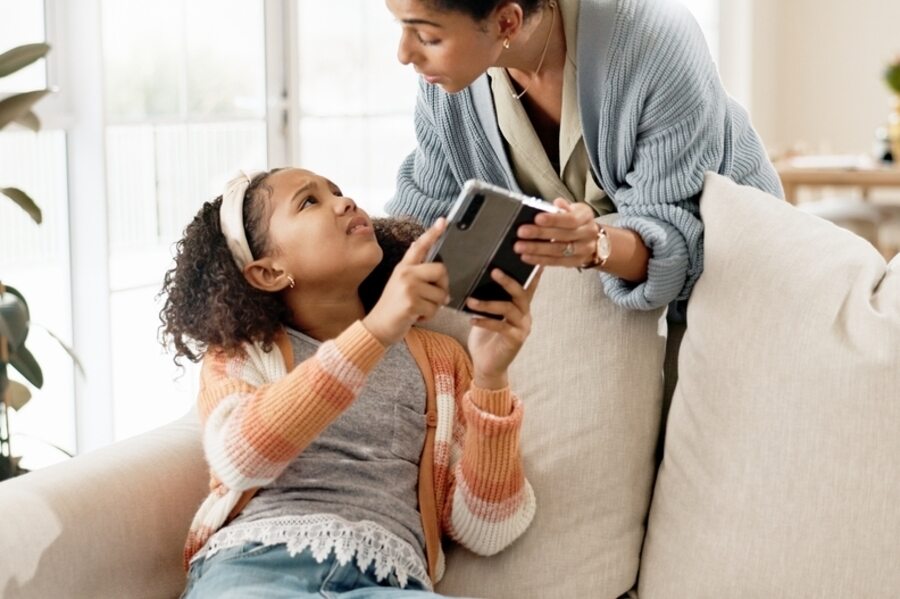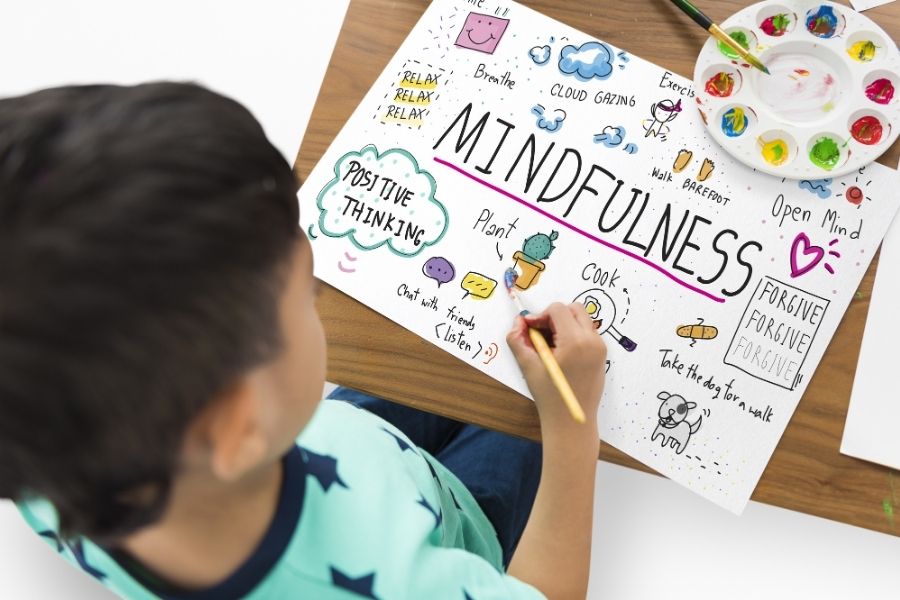My husband and I just watched all four episodes of the new Netflix show Adolescence, and haven’t been able to stop thinking or talking about it. Adolescence is a raw, unfiltered look at the turbulent teen years in the digital age. For the uninitiated, the series follows 13-year-old Jamie Miller, who is accused of killing a classmate, Katie Leonard. No whodunit, no gruesome scenes, just a powerful exploration of ‘why’? Jamie has a caring family that is not turbulent or dysfunctional – no major red flags. But out of the many subtle currents, the one aspect that shines in the case is social media, with figures like Andrew Tate and Manosphere name checked. As a parent, and that too a boy parent, this series shook something in me. Watching Adolescence isn’t just about understanding what children and young adults go through — it’s about recognising where parents fit into the picture. The series offers key insights into how digital culture shapes children and young adults, and what parents can do to help. Here are some of the biggest takeaways.
Pick up digital controls
Like all parents, I am trying to raise a kind kid, keep him safe and prepare him for adulthood. The second they enter the digital world, the exposure is insurmountable. Digital controls are the first step. Try to set screen-time limits and encourage device-free zones. Instead of making screen time the enemy, encourage engaging offline activities — sports, hobbies, or even unstructured boredom. The less dependent they are on screens, the easier it is to set boundaries.
Guiding, not just guarding
Once you’ve set the restrictions, what next? Adolescence makes one thing clear — just setting limits isn’t enough. Kids will find ways around screen time restrictions, and influence seeps in from everywhere. A report released by McAfee (2022) revealed that 85% of children in India have been victims of cyberbullying. The poll has also found that Indian children reported cyberbullying someone twice as often as children worldwide. Instead of relying only on parental controls, have regular conversations about what your child is watching, who they follow, and how they feel about it. Ask questions instead of lecturing. The jargon changes with every generation, emojis mean things that our brains can’t fathom. Having an open line of communication with your children will keep you checked in.
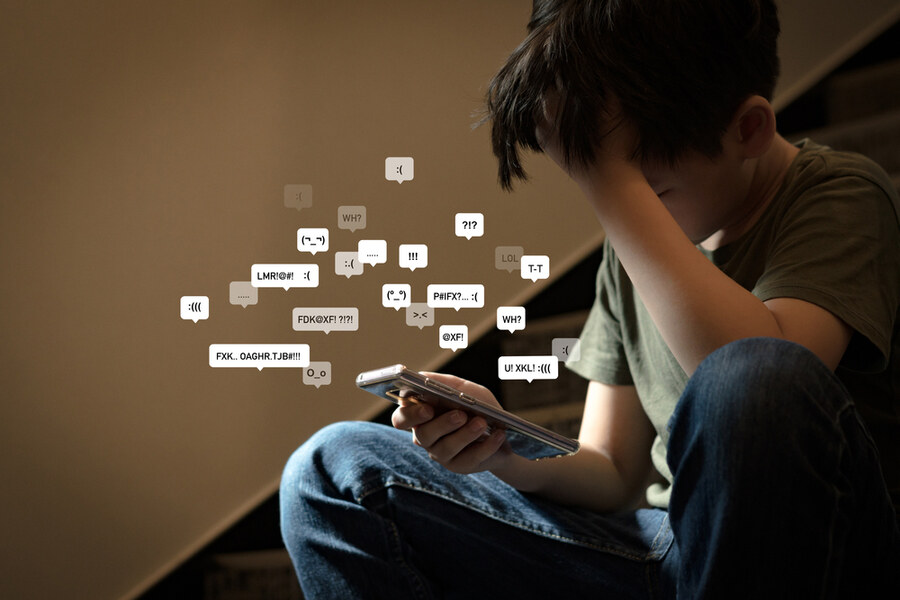
Cyberbullying is a rising problem with the younger population and having an open line of communication with kids can help identify the signs Shutterstock
Teach critical thinking
Kids will encounter all kinds of content, no matter how much we restrict. Teaching them to question sources, challenge harmful narratives, and think for themselves is the best defense. According to Kolkata-based clinical psychologist Nikita Jalan, “By encouraging open discussions and challenging them to consider different perspectives, parents can help their children develop the skills necessary to navigate an increasingly complex world. Monitor your kids’ online activities, talk to them regularly and listen twice as much.”
We are all responsible
The ideological virus — Man Box, Boy Code, precarious masculinity — that colonised Jamie’s mind runs deep. It starts from the one-off joke the husband will make with his friends about his wife, it will then begin in school and continuously be reinforced in the content that they consume. As impossible as it is to censor all of this, we can finally begin a generational shift by telling the boys right from wrong. It’s as simple as that. Disrespect needs to stop being passable as a WhatsApp forwarded joke.
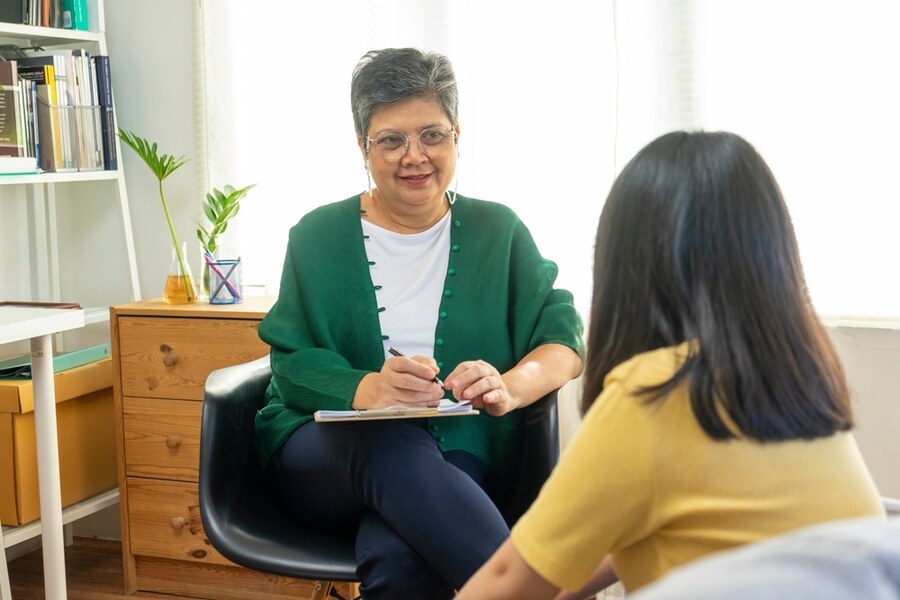
Sometimes seeking professional help to assess if your child needs support with their mental health is the right step forward Shutterstock
Seek out help
In the last episode of the series, the parents grapple with questions about whether they overlooked their son’s terrible temper. The new Internet landscape is vast and can be scary for kids. If you keep engaging in continuous conversation with your child, you’ll notice the behavioural shifts in most cases. “If you are worried about your child’s behaviour or mental health, speak to your GP, there might be an underlying biological issue. If they’ve ruled that out, and they think, ‘maybe there is something psychological going on here’, they can help develop a mental health plan for you and get you referred to the appropriate psychologist,” advises Nikita. In case you are seeking counseling for your children, Over a Cup of Tea is easily accessible.
Adolescence doesn’t offer a step-by-step guide to parenting in the digital age because there isn’t one. It simply holds up a mirror to the world we’re all navigating, exposing the quiet pressures, hidden influences, and difficult conversations that come with it. The takeaway isn’t to panic or unplug entirely. It’s to stay aware, stay engaged, and accept that no filter, rule, or restriction will ever replace the need for open conversations and conscious choices.
The author is an economist and full-time millennial mother, struggling to cope with daily chores

